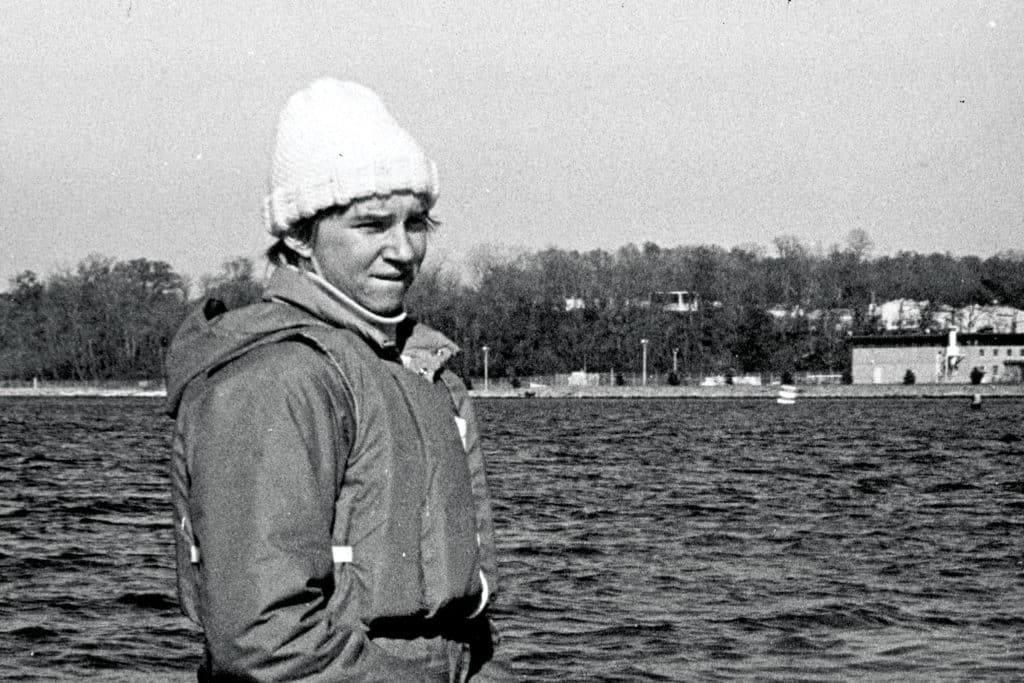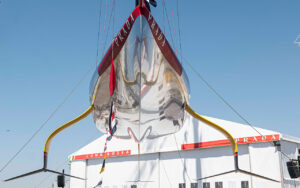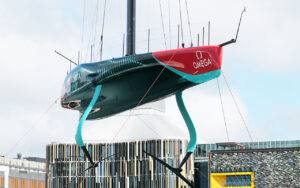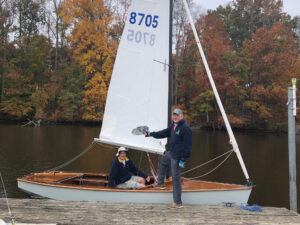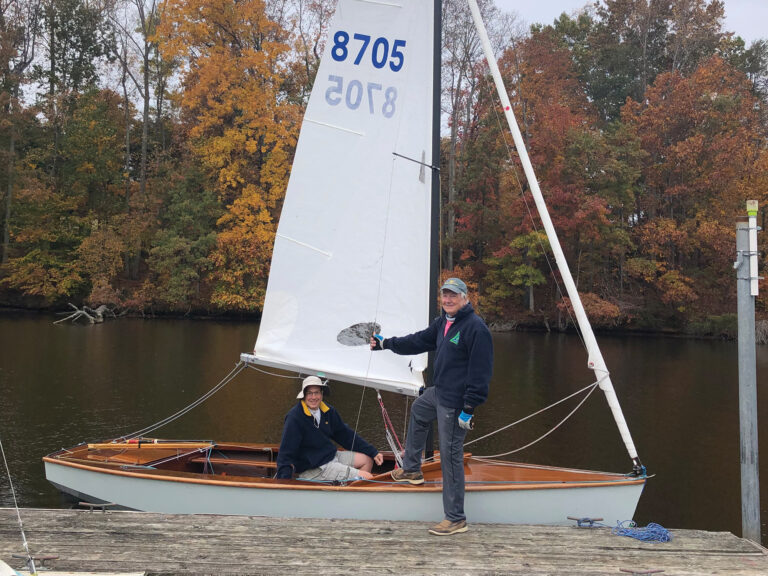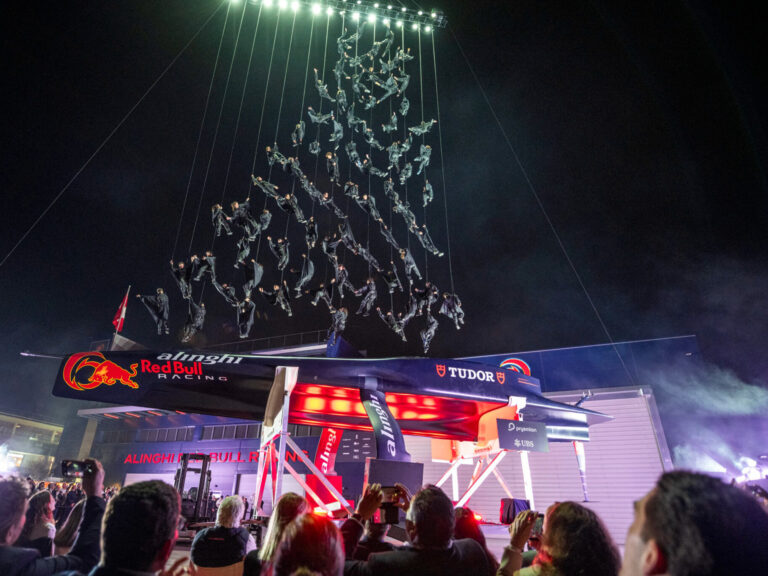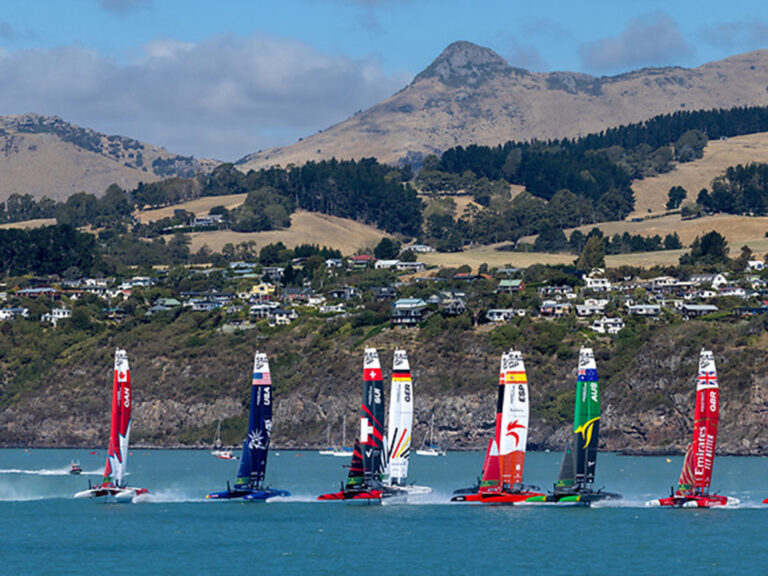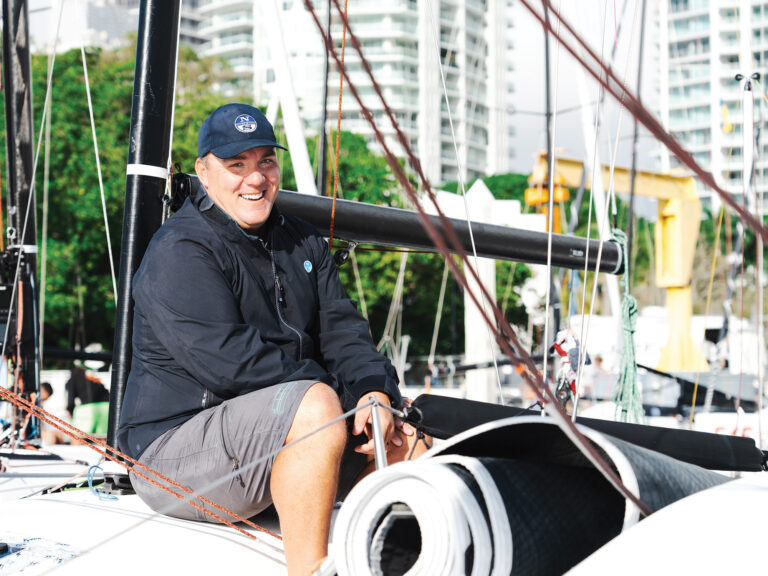I always tell people that college was where I really learned how to sail. Of course, that’s an oversimplification, and is in no way meant to disrespect the Barrington (R.I.) YC junior sailing program or the cruising with my parents I did when I was a kid. College sailing taught me more than just catching windshifts between buildings on the Charles River. It taught me how to organize, be on time, work within a team, and play nice with others. More importantly, though, it taught me how to get my act together. That’s what college is supposed to do for an 18-year-old kid, right?
My ticket to college sailing came through Boston University coach Skip Whyte, who recruited me. I remember sitting with my dad in Skip’s office at his retail sailing shop (called Can-Am Sailcraft), talking about possibilities with the team. He really didn’t know who I was, except that I came from Narragansett Bay and had won a lot of junior regattas for several years there. I’d never really traveled outside of our area. I was a homeboy, and proud of it.
College of Charleston put me on a wait list. The University of Rhode Island accepted me, but that was too close for my liking. I wanted to go to the city; BU it was, and it was also one of the best decisions of my life.
I’ll never forget my first day at sailing practice. The team owned Flying Juniors and Interclubs, and on that first day Skip started me in an Interclub with the captain, Brad White, crewing for me. Talk about being nervous.
The breeze was blowing through the crowded streets of Boston on the section of the river between the Boston University Bridge and the Massachusetts Avenue Bridge. The only things you had to be aware of were the rowing shells full of big boys and girls that would clearly snap any of us in half if we got in their way. Brad and I started the race well, caught the first shift, and roll tacked around the course to win.
After the race, when Skip rotated Brad out of the boat and brought in someone else, Brad’s parting words were, “Hey Skip, this kid is pretty good, and if he busts his butt I could see him having a chance at All-American by the time he’s a senior.”
I consider that moment in time the true beginning of my sailing career. It was the realization that a complete stranger, who’s also a really talented sailor, thought I was pretty good. It also gave me a goal right then and there—to be an All-American by my senior year, which I’d never given any consideration to. I knew a couple of All-American sailors from Narragansett Bay: There was Ed Adams, but he was the coach of our archenemy Newport YC junior sailing program, so I really didn’t have much interest at the time to study his career. And there was Tom Hazelhurst, an All-American at Brown University. He was my dad’s age. My dad played hockey at Brown and didn’t sail—but like a loyal son I always thought Tom was the second best sailor ever to come out of Brown.
That first day of practice and Brad’s vision of my potential really started to grow in my mind through that first semester. I worked harder in practice, listened intently at team meetings, and sought out the veterans to pick their brains. I started winning freshman events throughout the Northeast. I was getting a taste of it.
The rest of the team would be fired up at our Tuesday night team meetings after we won, and they would want to know all the details. That energy fed my motivation. Winning became an obsession because it allowed me to fit in with a bunch of people that I really liked and respected. I didn’t realize it at the time, but the experience was literally shaping my life.
My quest for a place among the All-Americans also dictated my summers. Teaching sailing got me closer to race boats, and I crewed for anyone— every night, every weekend, every opportunity. Our varsity team won the team race nationals during my freshman year, so the team as a whole was honing a winning atmosphere. There’s no doubt that winning breeds winners.
During the next three years, life was great. We had a fantastic team with the likes of Nick Burke, Jack Slattery, Pete Melvin, and John Shadden. The women’s team had standouts Drew Sour (Slattery), Lynn Jewell (Shore), Heidi Ziegler (Benjamin), and Cindy Douglass (Smith). Then came the next generation of BU Dinghy Sailors (BUDS) with my brother, Brad, and his group of crazies. There were phenomenal crews like Lizanne Capper (Campbell) and Barbara Smigelski. We got on a roll, and after a disappointing finish at nationals my sophomore year (fifth overall), I was awarded All-American, slightly beating White’s projection. But it wasn’t enough. In my junior year our team won the sloop, team racing and dinghy nationals, leading me to another All-American honor and the College Sailor of the Year Award. Holy crap … I’ve outdone Hazelhurst.
I received an All-American honor my senior year, too, but also the best lesson of my four years. We rested on the laurels of the previous year and didn’t put in the effort. Lo and behold, we had a shocker of a season. Don’t get cocky because there’s always someone ready to kick your legs out from under you. Team honors trump individual accolades: That was a big, big lesson.
My years at Boston University were some of the best I can remember. There are friends I will have forever, but more importantly, there are experiences that influenced me at the time and have affected every bit of my life since then. For that I thank Skip for pairing me up with Brad that first day. It was just the wake-up call I needed.
